Trans-Fats: the Hidden Killer in our Food
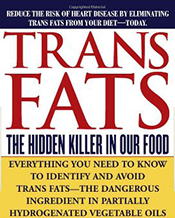 Vegetable oils quality was greatly altered during World War II. Producers
used new methods of oil extraction with heat (320°F - 392°F), the
only goal of which was to produce half the quantity of oil again. The extraction
with hexane, a hydrocarbon solvent with carcinogenic properties, allowed
the production of almost twice the amount of oil.
Vegetable oils quality was greatly altered during World War II. Producers
used new methods of oil extraction with heat (320°F - 392°F), the
only goal of which was to produce half the quantity of oil again. The extraction
with hexane, a hydrocarbon solvent with carcinogenic properties, allowed
the production of almost twice the amount of oil.
The major problem with these methods, compared to the cold pressed method that produces what is
commonly called virgin oil, is that the quality is poor: many of the
molecules are transformed into the infamous trans molecules. Dr. Kousmine
became a strong opponent of processed food, white sugar, refined flour
and refined oil, margarine, hydrogenated and partly-hydrogenated oils, soybean oil, corn oil,
peanut oil, canola oil, safflower oil and sunflower oil, believing each
of them being harmful to the body cells and providing only "empty calories",
as she called them.
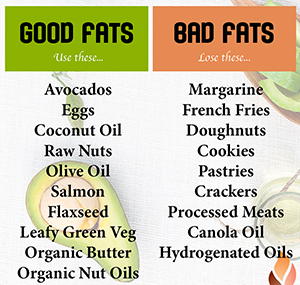 Dr. Kousmine
believed that by consuming RAW virgin vegetable
oil, such as cold pressed flaxseed and sunflower oil rich in omega-3 and
omega-6 fatty acids and in vitamin E, it is possible to reduce the permeability
of the intestinal membrane and to prevent toxins from invading the blood
and overloading the kidneys and the liver, thus preventing the formation
of a tumor and reducing the severity of any degenerative disease, like
multiple sclerosis or arthritis.
Dr. Kousmine
believed that by consuming RAW virgin vegetable
oil, such as cold pressed flaxseed and sunflower oil rich in omega-3 and
omega-6 fatty acids and in vitamin E, it is possible to reduce the permeability
of the intestinal membrane and to prevent toxins from invading the blood
and overloading the kidneys and the liver, thus preventing the formation
of a tumor and reducing the severity of any degenerative disease, like
multiple sclerosis or arthritis.
Trans-fatty acids have been the object of several studies worldwide.
These studies showed that, even at small doses, the trans molecules are
a health hazard. These studies lead some countries (Canada, USA, France
for example) to make health recommendations. In 2003, Denmark reduced the
proportion of trans-fatty acids to 2 grams per 100 grams of cooking oil.
Trans-fatty acids were forbidden in New York in 2006. In the Netherlands,
following an advertising campaign in the eighties, the amount of trans-fatty
acids in margarine went from 50% down to 2% today.
"Today nothing that the Heart Specialist does cures Heart Disease. Heart
Disease, like Diabetes and many, many similar systemic failures, is due
largely, if not entirely, to the consequences of bad engineering in our
fats and oils industry. The trans fats and other toxic isomers in our engineered
fats and oils are well understood to damage our cellular membranes, to
interfere with cellular respiration, to inhibit glucose transport, to set
in motion consequences that corrode our arteries, damage our eyesight,
devastate our kidneys, destroy our venous system, and directly cause the
large array of similar systemic problems. There is even evidence to link
these engineered fats and oils to our incredible Cancer epidemic through
their interference with cellular respiration. These toxic fats and oils
have even been linked to epidemic ADHD in our schools. It is important
to know enough about fats and oils to be able to make kitchen use of them
and to make intelligent food selections of these all important substances.
It's really not complicated, when information is presented with the intent
to inform instead of to deceive." Thomas Smith, author of
Insulin: Our Silent Killer

Excess consumption of vegetable oils is especially damaging
Mary Enig, PhD - "... Because polyunsaturates are highly subject
to rancidity, they increase the body's need for vitamin E and other antioxidants.
Excess consumption of vegetable oils is especially damaging to the reproductive
organs and the lungs both of which are sites for huge increases in cancer
in the US. In test animals, diets high in polyunsaturates from vegetable
oils inhibit the ability to learn, especially under conditions of stress;
they are toxic to the liver; they compromise the integrity of the immune
system; they depress the
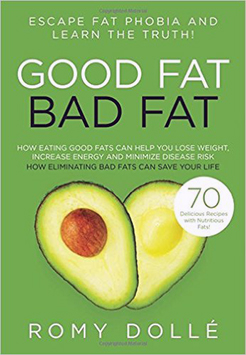 mental and physical growth of infants; they increase
levels of uric acid in the blood; they cause abnormal fatty acid profiles
in the adipose tissues; they have been linked to mental decline and chromosomal
damage; they accelerate aging.
mental and physical growth of infants; they increase
levels of uric acid in the blood; they cause abnormal fatty acid profiles
in the adipose tissues; they have been linked to mental decline and chromosomal
damage; they accelerate aging.
Excess consumption of polyunsaturates is
associated with increasing rates of cancer, heart disease and weight gain;
excess use of commercial vegetable oils interferes with the production
of prostaglandins leading to an array of complaints ranging from autoimmune
disease to PMS. Disruption of prostaglandin production leads to an increased
tendency to form blood clots, and hence myocardial infarction, which has
reached epidemic levels in America.
Vegetable oils are more toxic when heated. One study reported that polyunsaturates
turn to varnish in the intestines. A study by a plastic surgeon found that
women who consumed mostly vegetable oils had far more wrinkles than those
who used traditional animal fats. A 1994 study appearing in the Lancet
showed that almost three quarters of the fat in artery clogs is unsaturated.
The "artery clogging" fats are not animal fats but vegetable oils. Those
who have most actively promoted the use of polyunsaturated vegetable oils
as part of a Prudent Diet are well aware of their dangers. In 1971, William
B. Kannel, former director of the Framingham study, warned against including
too many polyunsaturates in the diet. A year earlier, Dr. William Connor
of the American Heart Association issued a similar warning, and Frederick
Stare reviewed an article which reported that the use of polyunsaturated
oils caused an increase in breast tumors. And Kritchevsky, way back in
1969, discovered that the use of corn oil caused an increase in atherosclerosis...."
Get the Trans Fat Out
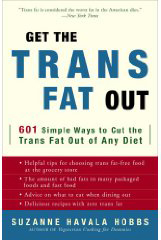 The media and health professionals are loudly proclaiming the health risks
of trans fat, because even the smallest amounts in your diet can raise
your risk of heart disease and other health conditions. But trans fats, especially
from partially hydrogenated oils are found everywhere! From the grocery
store shelves to restaurant menus, trans fat works its way into the foods
we eat and jeopardizes our health. Get the Trans Fat Out shows you how
you can identify and avoid these damaging fat ;without sacrificing taste
or convenience. Inside you'll find all the information you need to protect
you and your family from trans fat, including:
The media and health professionals are loudly proclaiming the health risks
of trans fat, because even the smallest amounts in your diet can raise
your risk of heart disease and other health conditions. But trans fats, especially
from partially hydrogenated oils are found everywhere! From the grocery
store shelves to restaurant menus, trans fat works its way into the foods
we eat and jeopardizes our health. Get the Trans Fat Out shows you how
you can identify and avoid these damaging fat ;without sacrificing taste
or convenience. Inside you'll find all the information you need to protect
you and your family from trans fat, including:
- Key health and nutrition information on the risks of trans fat
- Tips on grocery shopping for healthy products
- Delicious recipes with zero trans fat
- Information on how to stay healthy when eating at restaurants
- A complete, easy-to-understand guide to the trans fat content of
many common products and menu items from fast food chains
Research studies show conclusively that they cause non-insulin dependent type II diabetes,
or hyperinsulinemia. This is a disease which can eventually burn out the
pancreas and cause insulin dependent diabetes. These changed molecular
oils dramatically increase the risk of coronary heart disease, breast cancer,
other types of cancers and auto immune diseases.
Over 100 research studies show how harmful these oils are to the human body. However, these findings
have been largely ignored by the mass media and the FDA. In addition, the
Commercial Edible Food Industry has suppressed these research findings
for sometime. Why? Money and lots of it! Food processing companies
and the companies that own the patents on this process would lose billions
of dollars if they had to change their method of food production of hydrogenating
oils. The main reason oils are hydrogenated is that the hydrogenation of
the oils act as a preservative. This leads to increased shelf life of products
and less returns or spoilage of products. But at what cost is it to the
human body?
Fat: A Moment in the Mouth, Forever in the Brain
By Kelly Dorfman, M.S., L.N.
One of the most dramatic changes in the western diet over the last 50
years has been a shift in the type of fat we consume. While most people
are aware of the evils of eating too much saturated fat, few understand
the more serious risk posed by shelf-stable or hydrogenated oils. These
relatively new fats were introduced as part of the war effort over a half-century
ago. Because of a butter shortage, these chemically stabilized oils were
used widely at home and by food manufacturers who loved their cheap cost
and total resistance to spoilage.
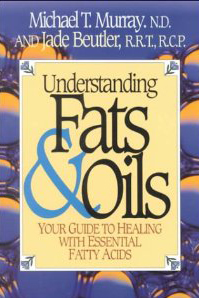 What started as a food manufacturer's dream has turned into a brain development
nightmare. The last three generations have been brought up on fats that
make a nice cookie but were never meant to be part of brain tissue. The
brain is 60% fat. Myelin, the fatty coating of the neurons or brain cells,
is 75% fat. The composition of that brain fat directly reflects the fat
composition of the diet. In a balanced situation, the brain would be composed
of a combination of saturated and unsaturated fats from meats, fish, nuts
and grains.
What started as a food manufacturer's dream has turned into a brain development
nightmare. The last three generations have been brought up on fats that
make a nice cookie but were never meant to be part of brain tissue. The
brain is 60% fat. Myelin, the fatty coating of the neurons or brain cells,
is 75% fat. The composition of that brain fat directly reflects the fat
composition of the diet. In a balanced situation, the brain would be composed
of a combination of saturated and unsaturated fats from meats, fish, nuts
and grains.
Unfortunately, hydrogenated oils are not chemically equivalent to the
fats found in whole foods. The rigorous hydrogenation process changes the
chemical properties of oils so that they contain molecular configurations
not generally found in nature. When these altered fats are consumed, the
body forces them into the spots reserved for natural fats, with potentially
deleterious effect. In early studies with rat pups, diets high in hydrogenated
fats lead to neurological development problems. For the last three generations
we have increasing numbers of people whose brains "function differently"
and consequently are distracted or have learning problems. Their brains
may be trying to send neurological impulses and conduct business using
neurons created from fats that are hard and inflexible. The result is inefficiency.
Whenever a culture's diet changes dramatically, it's members all unwittingly
become part of a huge, uncontrolled experiment looking at how patterns
of health and disease will change. Greenland Eskimos who moved to Canada
discovered that thousands of years of freedom from heart disease disappeared
in one generation when they lowered and changed the fat content of their
diet. Their traditional diet consisting mainly of seal blubber protected
against heart disease, while a much lower fat diet made up of other animal
foods did not.
While not diseases, attention deficit disorder and learning disabilities
are phenomena that are evolving at a rapid rate. Of the two major changes
to our diet that coincided with increases in these phenomena, only fat
content of the diet is easily managed. The other factor, the introduction
of preservatives and pesticides, is more difficult to control. To opt out
of this uncontrolled experiment, avoid what pesticides and chemicals you
can and consume only balanced fats.
Partially hydrogenated fats are listed clearly on labels. Most commercial
baked goods and frozen goods contain altered fats. Margarine is another
source. Butter is no more saturated in most cases than margarine, as the
hydrogenation process re-saturates or hardens the original oil. Therefore,
ounce for ounce, margarine is a poor substitute for butter. Better to use
small quantities of butter and more of other oils such as olive or sesame.
Even on a high fat diet, essential fats can be deficient. Symptoms of
essential fatty acid efficiency include dry, flaky or bumpy skin, wax build-up
in the ear, toe walking and excessive thirst.
Several oils are sold as supplements because of their ability to decrease
inflammation, help skin conditions or improve neurological or hormone function.
They fall into two families, omega 3 and omega 6, based on the chemical
placement of their unsaturated bonds. Fish, algae, flaxseed and linseed
oils contain mostly omega 3 family fats, while evening primrose, black
currant, borage and sunflower oils are the notable members of the omega 6 family.
The omega 3 family tends to be less available
in the diet than omega 6. Consumption of one of the members of the omega
3 family, a fat called DHA (not to be confused with DHEA), is highly associated
with visual-spatial skill level. Cod liver oil capsules contain very little
DHA but DHA can be eaten in fish or purchased as part of a combination
of fish oils called EPA/DHA. Unfortunately, kids do not tend to like fish
oils, so a less direct way to get omega 3 oils is organic flaxseed oil
(obtainable at any good health food store in the refrigerator section).
If using it as a supplement, add it to food at room temperature. Because
it is highly unsaturated, it should not be cooked.

The Oiling of America!
Thomas Smith
Here in America, conventional wisdom is trumpeted into our perception
through the most controlled media the world has ever seen. Both Hitler
and Goebels would turn over in their graves in a frenzy of jealousy if
they could see the way modern Americans respond to modern propaganda technology.
Many Americans easily believe the most unbelievable things when they feel
that they are expected to do so. Partly because technology is widely seen
to be something that laymen cannot understand, we are led to accept astonishingly
bad science as if it were gospel.
We either don't care or don't realize that widespread popular opinion
is always designed and manufactured; somebody pays to have opinion established.
It costs a great deal of money to install a cultural belief, even in a
gullible population.
Nowhere is bad science more deceptively contrived and universally successful
than in the medical consequences of uninformed food choices in our grocery
store. One of the worst of the deceptions found there is in the fats and
oils section of the store. An epidemic of chronic degenerative disease
is the price we're paying for not independently informing ourselves of
important health facts.
Although fats and oils are an important, even essential part of a healthy
diet, we are told that "fat cause's heart disease" and that we must reduce
our fat consumption. The fact is that, historically Americans have averaged
between 30% and 43% of their caloric consumption from fats and oils for
well over 100 years. Since our Federally led "war on fat" in the 1970's,
fat consumption has actually decreased below these historic levels. Yet
degenerative disease has reached epidemic proportions in the last fifty
years, with each year being worse than the one before it. Obesity has become
epidemic only in the last twenty-five years.
Clearly, there is something very wrong with the engineered food propaganda
that we're being fed. Something is also very wrong with the engineered
fats and oils that we're being fed.
Not coincidentally, it was about sixty years ago that America's switchover
to engineered fats and oils was greatly accelerated. Previously the nation
had consumed a balance of natural animal and vegetable fats and oils. This
switchover from a mix of animal and vegetable fats and oils to engineered
vegetable fats and oils is now well correlated with the epidemic of degenerative
disease that we now experience.
This isn't to say that animal fat is a health food; animal fat is not
a health food. However, a healthy body can metabolize a surprising amount
of animal fat before succumbing to disease if it has a good daily
supply of essential fatty acids, EFA's. Some ethnic cultures, particularly
above the arctic circle, thrived for generations on a diet of 60% animal
fat. Before the widespread use of refrigerators saturated fat was an important
adjunct to diet because it is a good "keeper".
The only fats and oils from any animal that are genuinely nutritious
are the unsaturated fish oils. Fish oil, in addition to containing high
levels of Omega three oils also contain EPA and DHA. These are oils which
a healthy human body can make from precursors; but, which an unhealthy
human body has difficulty making. Here in America, virtually everyone
who buys their food from a grocery store is seriously deficient in EFA's.
We suffer a double whammy by consuming large amounts of animal fat and
engineered trans fatty acids while at the same time undermining the body's
natural ability to metabolize them by a chronic lack of EFA's. This dual
assault lies at the very heart of our degenerative disease epidemic.
About thirty years ago another important change in consumer fats and
oils took place; this is positively correlated to the explosive epidemic
of Obesity. All of the remaining sources of Coconut oil were removed from
American processed food. The last item to have its coconut oil replaced
by artificial ingredients was the non-dairy creamer that once was available
for our coffee. Coconut oil is semisolid at room temperatures, which is
why it was originally used as a component of margarine. It also happens
to be an easily metabolized fat that revs up our cellular metabolism by
about 25%. It great for provoking weight loss. When we lost it, coincidentally
everybody started to have weight problems.
Ever vigilant, it was then that our Federal officials immediately declared
war on fat.
Another really disastrous change in the food chain was the removal of
flax oil from the grocery store. Archer Daniels Midland was the last to
distribute this vital oil and they stopped doing so in 1950 when they switched
over to milling flour.
Stein et al, in their research at the Department of Internal Medicine,
Center for Diabetes Research at the University of Texas Southwestern Medical
Center Dallas Texas have conclusively demonstrated the vital importance
of oils that contain the essential Omega three fatty acids. These Omega
three's as well as an important Omega six are the EFA's LNA and LA. When
we lack them in our diet, we suffer degenerative disease.
These changes and more, are made with the specific intent of improving
shelf life of the engineered fats and oils. The food industry is a commercial
industry; it is all about money. It is not about human health. It is much
cheaper to procure and to hydrogenate inferior oils like Cottonseed oil
than to distribute fresh healthy oils. This is why toxic fats and oils
have replaced the healthy oils that our parents enjoyed.
The degenerative disease epidemic that wracks the nation came coincidentally
with the introduction of engineered fats and oils. It is the type
of fats and oils that we consume that is directly correlated to the rise
of epidemic degenerative disease; it is not the amount of fats and oils
that we eat that causes the problem. It is by chronically consuming
the fats and oils that cause degenerative disease that we impair our ability
to consume healthy fats and oils. We also impair our ability to consume
carbohydrates and thus become Diabetic and Obese.
With the twin impairments of our ability to metabolize both carbohydrates
and lipids the human metabolism goes into a major emergency compensatory
mode every time we eat. In this mode, it virtually self destructs. The
resulting damage is expressed in literally hundreds of symptoms.
An important facet of this emergency compensatory mode that the body
assumes is a severe disruption in the endocrine system. This disruption
has been variously called "Diabetes", "Type II Diabetes", "Insulin
Resistant Diabetes", "Hyperinsulinemia", "Insulin Resistant Hyperinsulinemia",
"Syndrome X" and many other names as well.
There are hundreds of symptoms of the disease. Some are: Atherosclerosis,
Heart Failure, Stroke (both Hemorrhagic and Ischemic), Kidney Failure,
Liver Failure, Elevated Blood Pressure, Elevated Cholesterol, Elevated
Adrenal Hormones, Obesity, Elevated Lepton levels, Neuropathy, Retinopathy,
Cataracts, Male Impotence, Gangrene, Poor wound Healing......and too many
more to enumerate.
In 1949 the medical community, in a stated effort to focus resources
on our exploding epidemic of disease, completely reorganized themselves.
They divided all of the symptoms that appeared in the population into various
medical specialty groups. Instead of the general practitioner we now had
the Heart Specialist, the Endocrinologist, the Hepatic and Biliary Specialist
as well as numerous additional new specialists.. Each specialist focused
on his proprietary set of symptoms and nobody cured the disease anymore.
Nobody, except a few obscure scientists, were even willing to admit
that we had only one disease epidemic with many symptoms. Instead we defined
enough different diseases to keep all of our specialist in cake and caviar.
The adamant refusal to even discuss the "cure" word by todays physicians
dates back to this period. The only time we hear the "cure" word mentioned
anymore is when a tax free foundation is soliciting money. This is when
they tell you the "cure" for their proprietary disease is just around the
corner.
Today nothing that the Heart Specialist does cures Heart Disease. Heart
Disease, like Diabetes and many, many similar systemic failures, is due
largely, if not entirely, to the consequences of bad engineering in our
fats and oils industry.
The trans fats and other toxic isomers in our engineered fats and oils
are well understood to damage our cellular membranes, to interfere with
cellular respiration, to inhibit glucose transport, to set in motion consequences
that corrode our arteries, damage our eyesight, devastate our kidneys,
destroy our venous system, and directly cause the large array of similar
systemic problems. There is even evidence to link these engineered fats
and oils to our incredible Cancer epidemic through their interference with
cellular respiration. These toxic fats and oils have even been linked to
epidemic ADHD in our schools.
It is important to know enough about fats and oils to be able to make
kitchen use of them and to make intelligent food selections of these all
important substances. It's really not complicated, when information is
presented with the intent to inform instead of to deceive.
The difference between fats and oils is seen most clearly in their melting
point. If it is solid at room temperatures it's a fat; if liquid at room
temperature, it's an oil. The term lipid is used to describe both.
A lipid molecule consists of a glycerol backbone to which is attached
a number of fatty acids and sometimes other types of molecules. Many of
our edible, and not so edible, lipids consist of three fatty acids attached
to a glycerol backbone. These are called triglycerides.
Each of the three fatty acids in a triglyceride may be saturated or
unsaturated. If it is saturated there are no double bonds. If it is unsaturated,
there are one or more double bonds.
All fatty acids, saturated or unsaturated, consist of strings of carbon
atoms to which are attached the hydrogen atoms to the carbon atoms along
the chain. The end is typically terminated in an acid molecule. The saturated
fat, having all of its binding slots filled, has no double bonds and looks
like a symmetrical straight chain. These chains of carbon atoms typically
have between two and twenty-eight carbon atoms in the chain. The longer
chains are solid fats and the shorter chains are liquid oils. Their melting
points are proportional to their chain length..
The saturated fats are used by the body for Membrane stiffening, Cholesterol
manufacture, certain other purposes and as fuel for the cell. Most of the
needed saturated fats may be made by the body from other unsaturated oils
that we consume when we consume insufficient saturated fat.
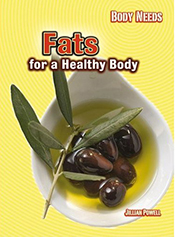 Most
of the important action in the human body is with the unsaturated oils.
These oils come in different geometries. Because of the double bonds at
the locations characteristic of the unsaturated oils, these molecules are
not necessarily straight line molecules as are the saturated lipids. At
the particular point where a double bond exists, the molecule becomes "bent"
in a natural "Cis" configuration.
Most
of the important action in the human body is with the unsaturated oils.
These oils come in different geometries. Because of the double bonds at
the locations characteristic of the unsaturated oils, these molecules are
not necessarily straight line molecules as are the saturated lipids. At
the particular point where a double bond exists, the molecule becomes "bent"
in a natural "Cis" configuration.
These "bends", both the number of bends and the location of the bends,
become very important to the metabolic processes of the body. These bends
interact with the geometry of the enzyme systems of our body so that these
fatty acids can be properly metabolized by these enzymes. If the right
number of bends are in the right place, our enzymes recognize the fatty
acid and the body knows what to do with it.
When the unsaturated fatty acid, in its triglyceride configuration,
remains in the seed or nut from which it originated it remains in the Cis
configuration. When it is refined from the seeds and nuts by modern expeller
pressing and deodorizing technology, it is severely damaged.
In particular some of it is totally fragmented so that our enzyme systems
cannot recognize it as a food. Some of it is transformed into toxic isomers
that actually poison our metabolism. Some is transformed into the "Trans"
configuration. With few exceptions, these are the "Refined" and "Polyunsaturated"
and "Monounsaturated" oils that appear in pristine clear plastic bottles
on room temperature grocery shelves.
From my own research of the scientific literature when I was forced
to find a cure for my own Type II Diabetes, I know that this Trans configuration
is a major cause of Type II Diabetes. I also know that the complete removal
of these toxic fats and oils and the consumption of therapeutic quantities
of the EFA's rapidly leads to reversal of Type II Diabetes..
The Trans configuration of the unsaturated oil, unlike the Cis, has
a straight line geometry that does not operate with our enzyme systems.
It is similar to but not identical to saturated fatty acids. As a result,
trans fats are used for membrane repair and stored as body fat.
When used for membrane repair they cause every membrane in the seventy
trillion cells of our body to become stiff and sticky. This is a mechanism
that severely limits glucose transport and directly causes Type II Diabetes.
After these unsaturated fatty acids come out of the refining or hydrogenation
process, virtually all of the Cis geometry is destroyed. It is this Cis
geometry that enables our body to properly metabolize the fatty acid. It
is this Cis geometry that causes it to become rancid very quickly at room
temperatures. It is the destruction of this Cis geometry that enables the
retailer to keep it on a room temperature grocery shelf for extended periods
without the oil going rancid.
When an unsaturated oil goes rancid, oxygen molecules attach to the
double bonds along the carbon chain. This is an endothermic reaction; that
is, it requires some energy from the environment. It can get this energy
by being heated or by light photons impinging upon the molecule. This is
why it is important to refrigerate these oils and to package them in opaque
containers. When the oil goes rancid it has an unmistakable, disagreeable
taste.
Unlike unsaturated fats and oils, saturated fats and oils, having no
double bonds, do not get rancid easily. They are good "keepers" without
refrigeration.. Because of this they, historically, have been a preferred
food before refrigeration became available. Trans fats, being much like
saturated fats do not go rancid as easily as their Cis counterparts.
Always look for cold pressed unrefined oils; when in doubt call the
manufacturer and try to talk to a knowledgeable person. All pressing technology
raises the temperature of the oil that is pressed from nuts and seeds.
How fast they operate the press to achieve large daily volumes has a great
deal to do with the quality of the oil. Whether or not the press is set
up to exclude oxygen during the pressing cycle is important also.
All fats and oils are mixtures. One never finds a pure saturated or
unsaturated lipid. Most oils contain a mixture of several different unsaturated
and saturated oils. When buying or using fats and oils it is useful to
have some understanding of the type of lipids that they contain.
Unsaturated oils are not cooking oils. Saturated fats are for cooking
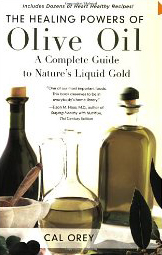 One of the most blatant of the frauds found in the fats and oils industry
is their marketing use of the terms "Monounsaturated" and "Polyunsaturated".
Unsaturated oils in general can, and often do, have more than one double
bond location. For example both of the EFA's, LNA and LA, have three unsaturated
locations. They differ in where these locations are along the chain. The
salesmen that trumpet "Monounsaturated" and "Polyunsaturated" do not tell
you that these oils are refined and the that most of the "Monounsaturates"
and "Polyunsaturates" are of the Trans geometry. The reason they do not
tell you is because the law does not require them to tell you. When you
buy a refined Polyunsaturated or Monounsaturated oil from a room temperature
grocery shelf you are buying transfatty acids for your table.
One of the most blatant of the frauds found in the fats and oils industry
is their marketing use of the terms "Monounsaturated" and "Polyunsaturated".
Unsaturated oils in general can, and often do, have more than one double
bond location. For example both of the EFA's, LNA and LA, have three unsaturated
locations. They differ in where these locations are along the chain. The
salesmen that trumpet "Monounsaturated" and "Polyunsaturated" do not tell
you that these oils are refined and the that most of the "Monounsaturates"
and "Polyunsaturates" are of the Trans geometry. The reason they do not
tell you is because the law does not require them to tell you. When you
buy a refined Polyunsaturated or Monounsaturated oil from a room temperature
grocery shelf you are buying transfatty acids for your table.
The undamaged Cis geometries require constant refrigeration, turn rancid
quite easily at room temperature and come in opaque containers.
One more important point should be mentioned. There is in addition to
modern refining technology another excellent way to engineer an oil to
be really cheap to manufacture and to be really toxic to the human metabolism;
that is by "hydrogenating" it. When an unsaturated oil is hydrogenated
Hydrogen molecules are supplied in a high temperature process to bind to
the unfilled double bonds of the carbon chain. This causes the oil to become
less liquid and more solid like a saturated fat. This technique is used
to adjust the texture of table fats like Margarine. It produces a margarine
product that often contains 40% trans fatty acids; the trans fatty acid content
sometimes goes as high as 60%.
When buying table fats and oils for your family, or even for your pet,
proceed with caution. Always look first in the refrigerator for cold pressed,
unrefined oils in opaque containers. Chronic use of toxic fats and oils
will quite reliably produce a whole litany of degenerative disease as you
approach your middle years. Don't believe the sales pitches from companies
with millions in revenue at stake from these products; read labels, become
informed.
Loveland, CO 80537 Copyright 2002 by Thomas Smith (970)
669-9176 All rights reserved
Thomas Smith is a reluctant medical investigator having been forced
into seeking a cure for his own Diabetes because it was obvious that his
doctor didn't have one. He has published the results of his successful
Diabetes investigation in his best selling book entitled "Insulin: Our
Silent Killer" written for the layman but also widely valued by the
medical practitioner. He has also posted a great deal of useful information
about the cause and cure of this disease on his
web page www.Healingmatters.com He can be reached by email.To
order "Insulin: Our Silent Killer" call this toll free number
1 (866) 320 7700

What's Wrong with Partially Hydrogenated Oils?
Unlike butter or virgin coconut oil, hydrogenated oils contain high
levels of trans fats. A trans fat is an otherwise normal fatty acid that
has been "transmogrified", by high-heat processing of a free oil. The fatty
acids can be double-linked, cross-linked, bond-shifted, twisted, or messed
up in a variety of other ways. Trans fats are poisons, just like arsenic
or cyanide. They interfere with the metabolic processes of life by taking
the place of a natural substance that performs a critical function. And
that is the definition of a poison.
Your body has no defense against them,
because they never even existed in our two billion years of evolution --
so we've never had the need or the opportunity to evolve a defense against
them. Partially hydrogenated oils will not only kill you in the long term
by producing diseases like multiple sclerosis and allergies that lead to
arthritis, but in the meantime they will make you fat!
Mary Enig, PhD - "One reason the polyunsaturates cause so many
health problems is that they tend to become oxidized or rancid when subjected
to heat, oxygen and moisture as in cooking and processing. Rancid oils
are characterized by free radicals, that is, single atoms or clusters with
an unpaired electron in an outer orbit. These compounds are extremely reactive
chemically. They have been characterized as "marauders" in the body for
they attack cell membranes and red blood cells and cause damage in DNA/RNA
strands, thus triggering mutations in tissue, blood vessels and skin. Free
radical damage to the skin causes wrinkles and premature aging;
free radical damage to the tissues and organs sets the stage for tumors;
free radical damage in the blood vessels initiates the buildup of plaque.
Is it any wonder that tests and studies have repeatedly shown a high correlation
between cancer and heart disease with the consumption of polyunsaturates?
New evidence links exposure to free radicals with premature aging, with autoimmune diseases such as arthritis and with Parkinson's
disease, Lou Gehrig's disease, Alzheimer's disease
and cataracts. Vegetable oils are more toxic when heated. One study reported
that polyunsaturates turn to varnish in the intestines. A study by a plastic
surgeon found that women who consumed mostly vegetable oils had far more
wrinkles than those who used traditional animal fats. A 1994 study appearing
in the Lancet showed that almost three quarters of the fat in artery clogs
is unsaturated."